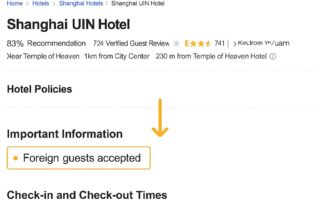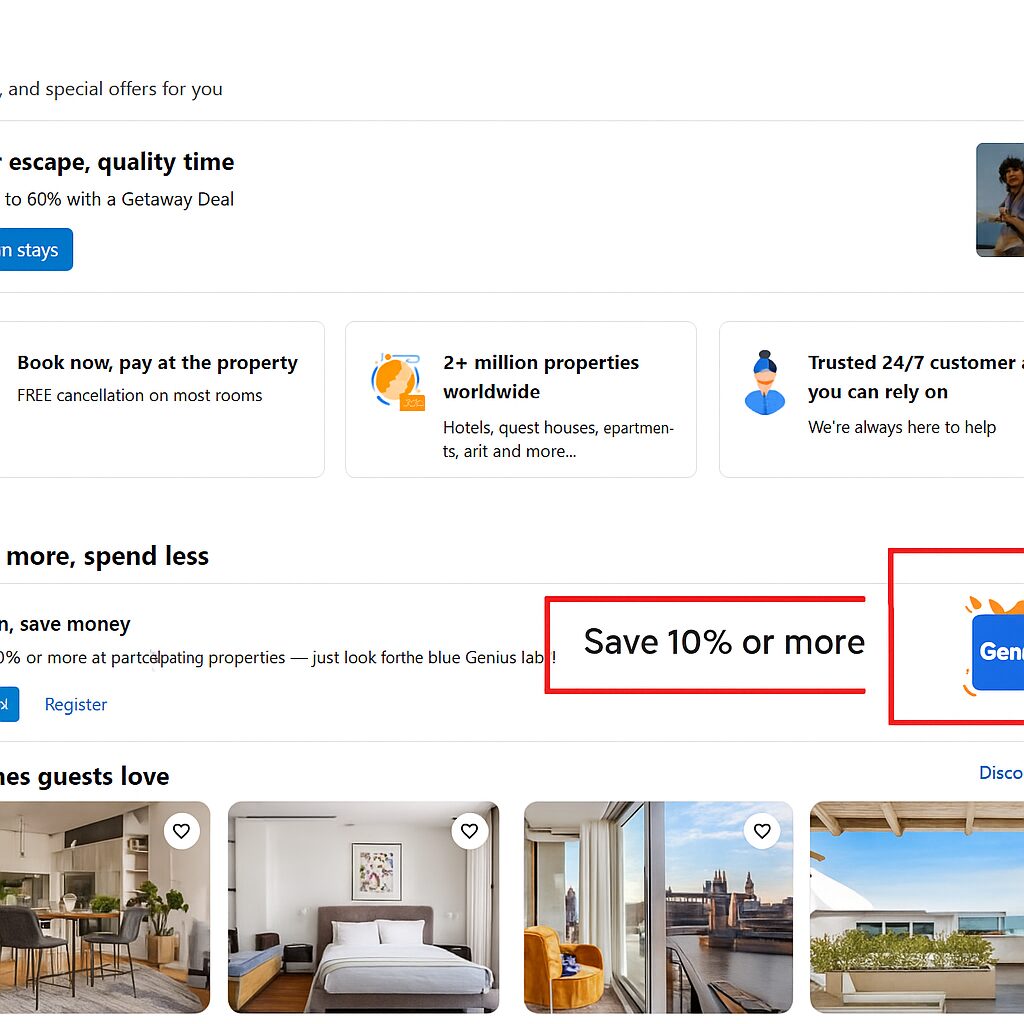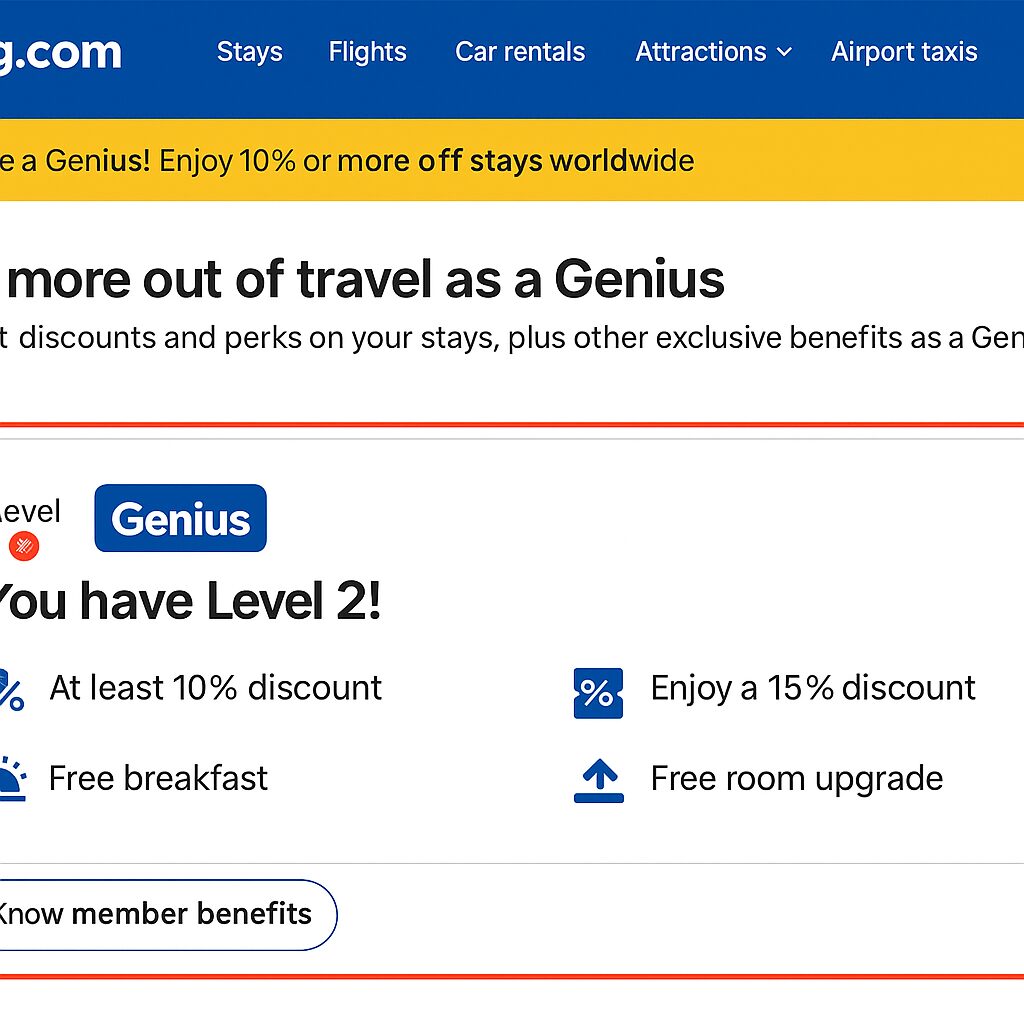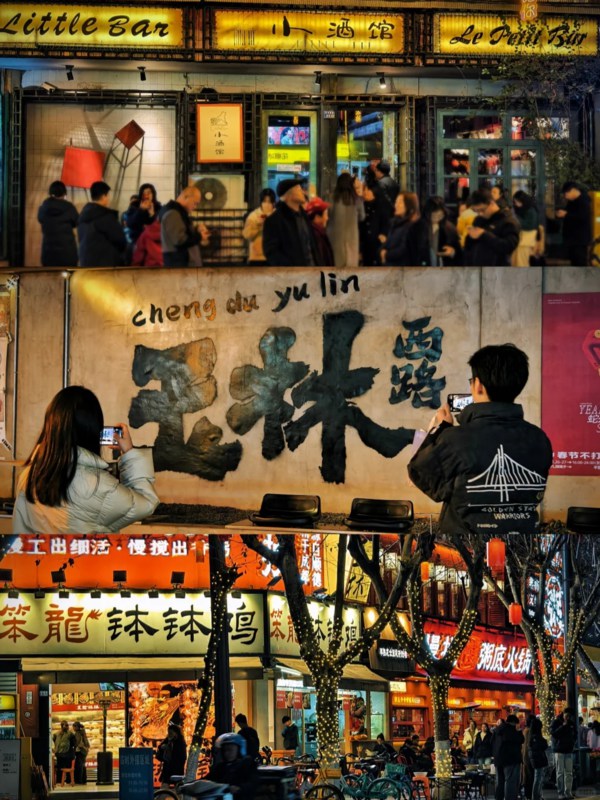Quick Summary:
Choosing where to book China hotels isn't just about price—it's about making sure you can actually check in. In China, not all hotels are licensed to host foreign guests, and late-night surprises at the front desk are more common than you think. This guide compares Trip.com, Booking.com, and Agoda through foreign traveler's lens, weighing local support, pricing quirks, and foreign guest policies so you know which platform fits your trip.

Why Booking China Hotels Is Different from Anywhere Else
The Passport Check-In Rule You Don't Hear About Until Check-In
It's not a quirk — it's the law. In China, hotels must be licensed by the Public Security Bureau to host foreigners, and they're required to register every guest’s passport within 24 hours. You only discover how strict this is when you arrive at 11 PM in Shanghai, hand over your booking confirmation, and the receptionist politely says, “Sorry, we can't check you in without your passport.” Even with a confirmed reservation, no passport means no room.
If you book China hotels without checking for a “Foreigners Accepted” tag (Trip.com has this, others don't), you might end up scrambling on the sidewalk, hunting for a last-minute alternative. In smaller cities, this rule gets enforced to the letter — sometimes even if you're just renewing your visa and staying in-country.
Language Barriers, Local Apps, and Why It's Not Just About Price
A cheaper rate isn't much use if you can't explain a booking issue to the front desk. While Shanghai's international chains usually have English-speaking staff, many mid-range and boutique hotels don't. Platforms with local call centers, like Trip.com, can step in and talk to the hotel in Mandarin — a lifesaver when your Chinese is limited to “ni hao.”
In China, booking platforms aren't just middlemen; they're your translator, negotiator, and sometimes your only way to keep a room from being given away. That's why when you book China hotels, the app you use matters as much as the price you see.
Trip.com — The “Local Insider” with an English Face
Overview
Trip.com is the international arm of Ctrip, China's largest online travel agency. It blends the local muscle of a domestic booking giant with an interface built for non-Chinese speakers. For travelers planning to book China hotels, especially in mega-cities like Shanghai, that means better foreigner-friendly listings, faster problem resolution, and a safety net when language or policy quirks get in the way.
Booking Flow & Search Filters
Trip.com's search feels tailored for China's travel scene. You can filter for “Foreigners Accepted,” which is critical if you don’t want to risk being turned away at check-in. Payment supports multiple currencies, and confirmation is almost instant. The calendar view even marks Chinese public holidays — a subtle but useful nudge when trying to dodge peak prices.
Not sure which neighborhood fits your first night? See our where to stay in Shanghai (neighborhoods & traveler reviews) guide.

“Foreigners Accepted”
Local Network & Check-In Reliability
Because it's tied directly to Ctrip's domestic system, your booking is synced with what the hotel's own staff sees. That cuts down on “lost reservations,” a complaint you'll see on Reddit about other platforms. In one case, a traveler arriving at Shanghai Hongqiao late at night had Trip.com call the hotel in Mandarin to hold their room — a service you rarely get elsewhere.
Pricing & Bundled Value
Trip.com might not always post the lowest nightly rate, but its value often comes from bundled deals. High-speed train + hotel packages are a standout, especially for Shanghai–Hangzhou or Shanghai–Suzhou routes. Browsing in CNY can also reveal lower local prices than the USD rate — a small trick that can make a big difference when you book China hotels for multiple nights.
Problem-Solving Speed
Unlike global competitors that push you to “contact the property,” Trip.com’s support team will often intervene directly. If a hotel overbooks, they can rehouse you in a similar property and even cover part of the cost. For non-Mandarin speakers, that kind of on-the-ground problem solving can save an entire trip day.
Extra Perks Worth Noting
Trip.com goes beyond hotels: you can add airport transfers, attraction tickets, and even theme park passes during checkout. All bookings appear in one itinerary in the app, reducing the risk of mismatched info. In China, where timing and coordination matter more than you expect, this all-in-one setup is a quiet game-changer.
Booking.com — Familiar Interface, But Limited Local Reach
Overview
Booking.com is the household name for hotel reservations worldwide, and it brings that same polished, multilingual interface to China. If you like having one account for all your trips, it's a comfortable choice. But when you book China hotels, especially smaller local properties, its limited integration with China's domestic booking systems can mean missing details that matter — like whether the hotel can legally host foreign guests.
Booking Flow & Interface Comfort
The interface feels exactly like what you've used abroad: clean, predictable, and loaded with filters for location, amenities, and price. For travelers new to China, this familiarity is a plus. However, there's no dedicated “Foreigners Accepted” filter, so you may have to dig into property descriptions or message hotels directly — not ideal if you're booking last-minute in Shanghai.
Foreign Guest Clarity & Check-In Risks
International chains on Booking.com almost always accept foreign passports without issue. But smaller, boutique-style Chinese hotels can be unpredictable. Reddit threads are filled with stories of travelers turned away because the property wasn't licensed for foreign guests — something Booking.com's listing didn't flag. If you book China hotels in second-tier cities, this is a real risk.
Pricing & Loyalty Perks
Booking.com can be competitive for well-known hotels, and Genius-level members may enjoy free breakfast, late check-out, or upgrades. But mid-range local hotels sometimes cost more here than on Trip.com or Agoda. During peak travel seasons, it's worth running the same search on multiple sites before locking in your rate.
- Genius-level members
Customer Support & Problem Resolution
The 24/7 customer service is responsive but often limited to messaging between you and the hotel. They rarely call in Mandarin on your behalf, which can be a hurdle if the front desk speaks little English. For routine changes, it works fine; for urgent issues at check-in, you may find yourself stuck translating via a phone app.
Best For…
If you value a globally consistent booking experience, clear cancellation policies, and loyalty perks that work worldwide, Booking.com delivers. But in China, where local systems and rules can trip up even seasoned travelers, it's safest to use it for major chains or properties you've confirmed can host foreign guests.
Agoda — The Middle Ground for Asia-Based Travelers
Overview
Agoda sits in a sweet spot between global recognition and Asian market know-how. It's well known across Southeast Asia and Japan, and in China it often shines for travelers who mix big cities like Shanghai with smaller regional stops. If you often book China hotels alongside trips to Bangkok, Tokyo, or Hanoi, Agoda's cross-border deals and app-driven pricing can be surprisingly competitive.
Booking Experience & App Advantages
Agoda's desktop site feels familiar, but the mobile app is where it pulls ahead. Download it and you'll see mobile-only discounts, “Secret Deals,” and limited-time vouchers that don't appear on desktop. I've personally seen 12% vanish off the price of a central Shanghai hotel just by switching to the app. If you’re booking on the move — say, between train rides from Hangzhou — that kind of flexibility pays off.
Foreign Guest Handling
Like Booking.com, Agoda doesn't offer a “Foreigners Accepted” filter, so you'll need to scan descriptions or message properties. The difference is that Agoda tends to work with mid-tier chains and boutique hotels that have experience with international guests. Still, when you book China hotels in smaller cities, especially if you're landing late, a quick confirmation message in advance is worth the extra minute.
Price Competitiveness & Regional Network
Agoda is often a wildcard in pricing — sometimes undercutting Trip.com, other times slightly higher. Its strength comes from a regional network that rewards multi-country trips. If you're stringing Shanghai with Osaka or Singapore, keeping all bookings in one Agoda account can unlock multi-stay coupons and cashback offers, especially if you use their PointsMAX program to earn airline miles.
Building a multi-city loop with Shanghai as your base? Start with what to do in Shanghai and plan out day-one logistics.
Customer Service & Change Policies
Agoda's support team has improved, with 24/7 availability and faster escalation than a few years ago. They'll often call the hotel if there's a problem, though they're not as embedded in China's domestic systems as Trip.com. One edge: flexible change policies even on discounted rooms — a relief if your China travel plans shift with train delays or last-minute detours.
What Reddit Travelers Say About Booking China Hotels
The “Non-Refundable” Trap That Caught a First-Time Visitor
One user shared how they booked a “great deal” on a hotel in Shanghai through Trip.com, only to be told at check-in that the property couldn’t accept foreign passports. The catch? The rate was marked non-refundable, so they lost the first night's payment before finding a new place. They wrote:
💡 Real Traveler Tip from Reddit
“Lesson learned—always message the hotel on Trip.com chat to confirm they accept foreigners before paying. Don't trust the listing 100%.”
(source)
The App Features That Save Time (and Headaches)
A third commenter compared Trip.com with Booking.com, pointing out that Trip.com shows whether hotels can host foreign guests more clearly—though you still need to confirm directly. They also liked that Trip.com's map filters worked better for Chinese cities, especially for finding places near metro lines.
☎️ Advice from r/chinalife
“I use Booking.com outside China, but in China, Trip.com's map and filters save me a ton of walking with my bags.”
(source)
Which Platform Should You Use to Book China Hotels?
Trip.com feels like having a local friend in your pocket. In Shanghai, it's the one that can call your hotel in Mandarin, confirm they'll keep your room, and even throw in a high-speed train ticket. For anyone trying to book China hotels during busy seasons, that safety net is worth a few extra clicks.
Booking.com is like the comfortable old jacket you've worn everywhere — you know the pockets, you trust the zippers. Its Genius perks work in China just like anywhere else, but you'll need to be extra sure the boutique hotel you pick can legally host foreign guests.
Agoda? Think of it as your Asia travel buddy. If your trip jumps from Shanghai to Bangkok to Tokyo, Agoda's mobile-only deals and regional network can shave serious costs. It's not as deeply plugged into China's domestic booking systems, but for cross-border trips, it's a solid choice.
The smartest move? When you book China hotels, run the same search across all three. The cheapest rate isn't always where you expect it, and in China, a smooth check-in is just as valuable as a low price.
FAQ: Booking Hotels in China for Foreigners
Q: Do all hotels in China accept foreign guests?
A: No. Hotels need a special Public Security Bureau license to host foreigners. Platforms like Trip.com mark “Foreigners Accepted,” but Booking.com and Agoda often require you to confirm directly.
Q: Which site handles last-minute changes best?
A: Trip.com tends to be fastest in China because of its local call centers. Agoda is improving, and Booking.com is fine for big chains, but slower for small, local hotels.
Q: Can I trust Booking.com in China?
A: For international chains, yes. For smaller properties, double-check — some guests have been turned away at the desk despite having a booking.
Q: Does Agoda have better prices?
A: Often on the app, yes. Agoda’s mobile-only rates can be 10–15% lower than desktop, but it varies by city and season.
Q: Can I pay with my foreign credit card?
A: Yes, all three accept major cards. Just make sure the card works for in-app payments if the hotel requires prepayment.
Q: Which site offers train + hotel packages?
A: Trip.com is the only one with direct railway integration, letting you book high-speed train tickets and hotels in a single transaction.
Q: Is it cheaper to browse in CNY?
A: Sometimes. Trip.com in particular can show lower local rates, but always compare final prices with taxes and fees included.
Q: How do I avoid check-in issues?
A: Always carry your passport, confirm the hotel’s foreign guest policy before booking, and try to arrive during staffed hours. Using a platform with local-language support helps a lot.
Final Note
In China, the right booking choice can be the difference between dropping your bags in a warm room or standing in a brightly lit lobby at midnight, trying to explain yourself to a puzzled receptionist. Whether you go for Trip.com’s local pull, Booking.com's global consistency, or Agoda's Asia-focused deals, take ten extra minutes to double-check the hotel’s foreign guest policy before you travel. When you book China hotels in peak season, that small bit of homework can save you a night’s sleep — and maybe your whole trip mood.







